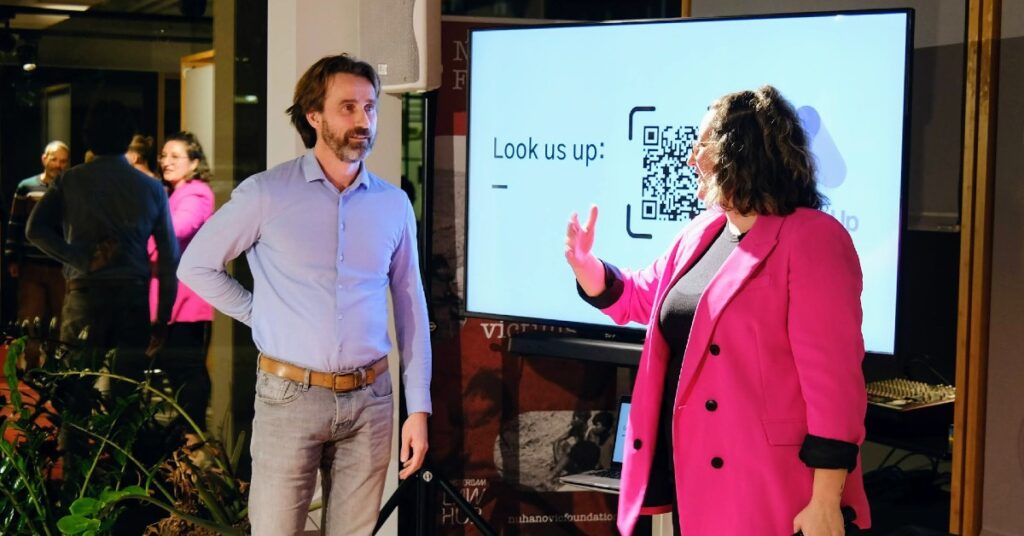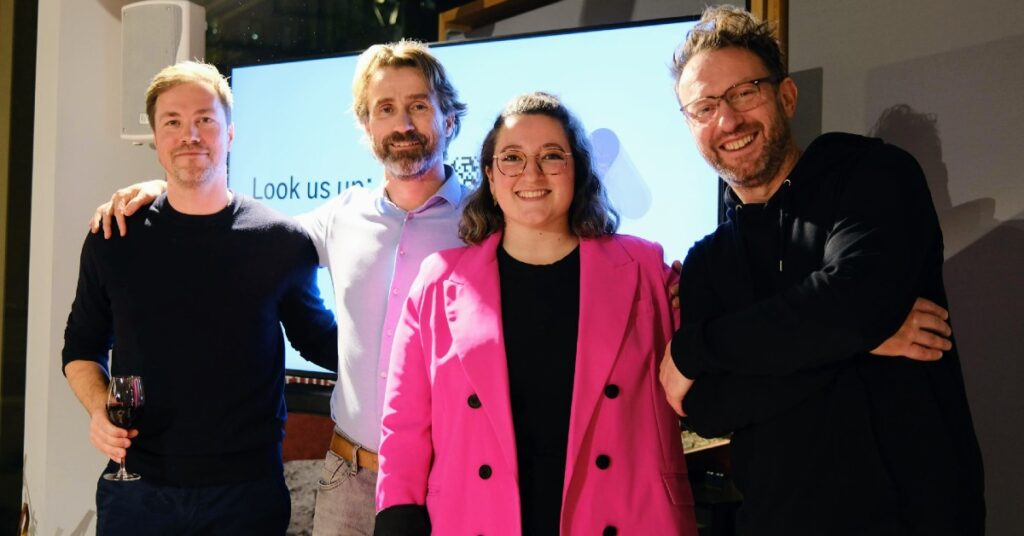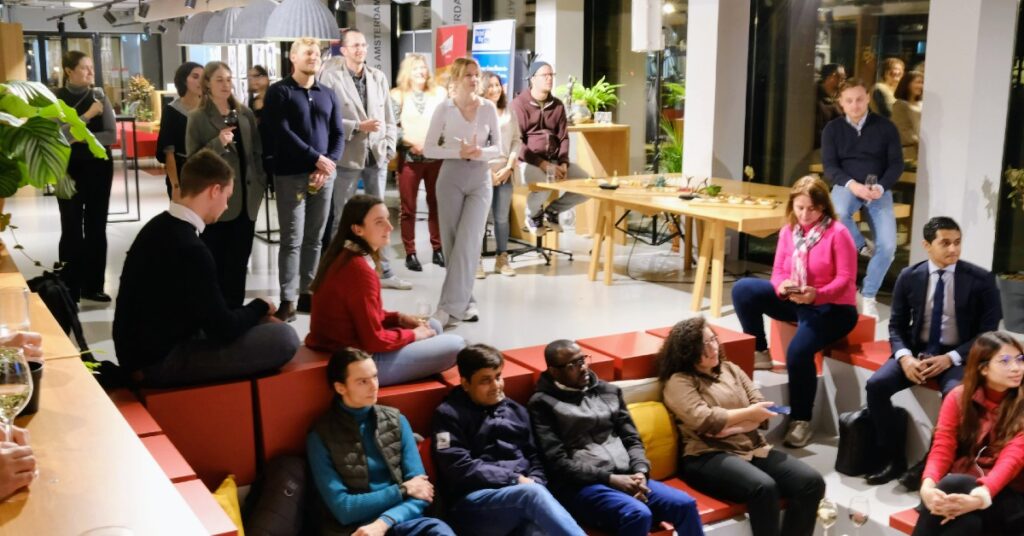[ad_1]
RestartUp Netherlands aims to make bankruptcy last resort for startups in the Netherlands | Image Credit: StartupAmsterdam
Startups are not without an ecosystem of support infrastructure around the world. From crafting their business plan to seeking advice on fundraising or creating a sales strategy, startups now have an entire ecosystem in the form of incubators, accelerators, investors, and even cities to support them.
While you would have read about a lot of successful startups on this site, there are many that fail to succeed including ones with backing from venture capitalists. According to researcher Sarah Herzog, 50 per cent of startups fail within the first five years while 90 per cent fail within ten years in Europe and North America.
Data from the Netherlands Chamber of Commerce (KVK) shows that 62 per cent of entrepreneurs (or about 885,714) in Noord Holland are worried about the future of their business while 14 per cent (or about 200,000) are on the brink of collapse. However, when entrepreneurs fail they do intend to restart but research by Herzog shows they face roadblocks in the form of stigma around talking about failure. They are also faced with challenges such as lack of people to talk to and hard to find information.
If you ever wondered what happens to those failed startups and businesses? Well, most of the entrepreneurs are left to find their way themselves. RestartUp Netherlands, a new initiative from Startup Amsterdam and the Amsterdam Law Hub, wants to turn a page on this story.
Educating the founders

Failure of startups can be distilled to a number of reasons but most of them can be boiled down to bad luck or timing. However, the current energy crisis and inflation has also forced some startups out of business. Other factors contributing to financial difficulties of startups include shortage of labour in Europe and end of tax holiday offered by governments.
![]()
However, Frances Singleton-Clift, Project Manager Research & Innovation at the Amsterdam Law Hub, says lack of easy-to-understand information about bankruptcy and insolvency is one of the biggest problems. She says the “first challenge is in educating founders about their options during insolvency” and “bankruptcy should be the last resort.”
“Some insolvency options do not require entrepreneurs to even close their business, but enable them to keep going after financial restructuring,” she says.
RestartUp Netherlands aims to improve outcomes through a combination of education, free-to-use tools, an insolvency mentor matching service for peer guidance, and a legal shop for startups and NGOs supported by Amsterdam Law Hub, one of the founding partners. As part of its efforts, the team behind Restartup Netherlands has developed a detailed insolvency education toolkit.
The toolkit explains and visualises the whole insolvency process for B.Vs and ZZPs and identifies where the entrepreneurs are in the process through a few questions. Based on the data, Frances says the toolkit offers “detailed information about the associated costs and timeline of each stage of the insolvency process.”
The tool also helps entrepreneurs generate letters that help reach agreement with creditors and also connects them to Rechtswinkel to speak for free with student legal advisers. RestartUp Netherlands plans to “create different versions of its toolkit to suit the technological and informational level of its users.”
“We also want to expand the number of document generation services we offer and allow users to make their own dossiers and store them online,” adds Frances. “Finally, we want to expand our network of mentors.”
A free-to-use insolvency toolkit
The toolkit designed by RestartUp Netherlands is a simple tool that assesses startup founders through a series of short questions to identify where they are in the process. Next, the toolkit directs users to tailored advice and offers step-by-step guides for pre, during, and post bankruptcy. “The toolkit also enables founders to generate legal documents with a few clicks and to send them out to the people they owe money to through our tool,” explains Frances.
The premise of this toolkit is to not only educate founders about the various options at their disposal but also to save them time and reduce the number of uninformed choices at each stage.
Interestingly, this toolkit is free and Frances says by offering this for free they are better positioned to help entrepreneurs who “do not have the resources to engage a lawyer or accountant to get professional help.”
We have seen how governments can come to the rescue of corporations with millions in bailout support whereas individual citizens can seek debt help from the government through schuldhulpverleners. Entrepreneurs, on the other hand, have little or no such support, burdening them alone with the financial and psychological burden of business failure.
With the free toolkit and an insolvency mentor matching service, Restartup Netherlands plugs the support gap created by commercial service providers and the government.
Failing to reach out for help

One of the common mistakes startup founders make, according to research conducted by Herzog, is failing to reach out for help. She suggests that entrepreneurs facing insolvency should be encouraged to “proactively talk about their worries” and not hope that the “problem will resolve itself.”
She also recommends entrepreneurs to refrain from taking personal liability for business debts by signing on business loans or negotiating with only some of their creditors. By speaking to the right people, entrepreneurs can resolve their confusion around the insolvency process, including how long it takes, whether a lawyer is needed, their stage of insolvency, and what happens to their employees.
Wouter de Vos, CEO and co-founder of Techmongers, says entrepreneurs should learn to “appreciate the power of partnerships” early. At Codaisseur, which declared bankruptcy in November 2022, De Vos says they did everything themselves but could have improved cash flow with the right partnership.
Startups are always advised to be prepared for financial difficulties and through the toolkit, they will now be able to understand the process. For Frances, the toolkit is a way for entrepreneurs to proactively educate themselves on their options so they don’t have to panic should there be a financial challenge.
A well-informed entrepreneur

RestartUp Netherlands does not see an immediate decline in the number of startups filing for bankruptcy but it does see creating a well informed entrepreneur in process. By informing entrepreneurs about different stages before bankruptcy and the benefits of pulling the plug in time, they “can make informed choices during difficult times.”
With experience, entrepreneurs will be able to avoid pitfalls for their next venture. By realising and approaching bankruptcy in time, entrepreneurs can reach an agreement with their creditors in time. This will allow them to either continue with their business or restart with another venture immediately.
“The entrepreneur will stay in control of their business and can ensure that their debts are settled in the most cost-effective way,” says Frances.
This will be a better outcome than a curator taking over the business and selling the IP for low cost to a competitor or finding management mistakes that can make the entrepreneur personally liable for the troubled business. Bankruptcy laws are punishing but Frances says, “any entrepreneur that can be helped to a better insolvency outcome, is a great achievement.”
De Vos has launched two new startups called Techmongers and Kyna that aim to build on the legacy and success of Codaisseur. “What we did with Codaisseur was great, but it wasn’t very scalable yet. With Kyna, we intend to change that and make fast-paced, immersive learning scalable,” adds De Vos.
With Techmongers, De Vos is also trying to solve the challenges of the labour market. “You need to outsource that responsibility to others when your business grows because you can’t run everything yourself,” De Vos advises young entrepreneurs.
Like Frances mentioned, there is a correlation between experience and chance of success for entrepreneurs. With experience, they become better at decision making and avoiding pitfalls. De Vos has done and with RestartUp Netherlands, we will see more entrepreneurs make that leap in the Netherlands.
[ad_2]
Source link
